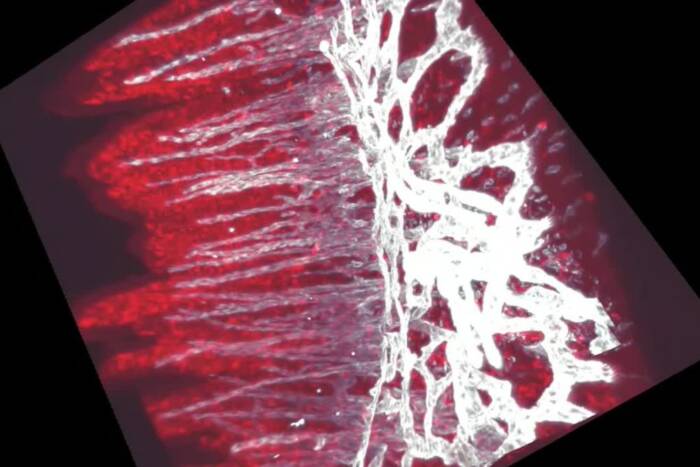Rockefeller sustainability initiatives are honored by the Association of Energy Engineers
The Rockefeller University’s multi-year initiative to reduce energy usage and carbon emissions will be honored this week with an award from the Association of Energy Engineers. The local award, for institutional energy management of the year, recognizes the consistent achievements of an entire team and is presented to a public sector institution for outstanding accomplishments in developing, organizing, managing and implementing its comprehensive energy management program. Rockefeller’s win at the local level means it will now be entered to compete at the regional, and potentially national, levels.

Power chart. A portion of Rockefeller’s daily electricity consumption, as recorded by one of several meters installed at the points where energy is delivered from the local grid. The university’s Plant Operations office closely monitors energy demand as part of its efforts to identify opportunities to increase efficiency.
The Association of Energy Engineers, a nonprofit professional association with over 16,000 members, recognizes work done by individuals, organizations, agencies, and corporations to reduce energy usage. Past winners of this award include the Montefiore Medical Center, The New York City Department of Education, Vornado Realty, and New York University.
“Rockefeller’s dedication to excellence extends beyond its science, to the operation of it physical plant,” says Alex Kogan, associate vice president for plant operations. “We pride ourselves on adopting the industry’s best practices to reduce our energy usage and get the most value from every watt of energy we use. We are pleased to see our efforts recognized by the Association of Energy Engineers.”
Steps Rockefeller has taken to become more energy efficient include:
- Improvements to its boilers and chillers, and installation of variable speed pumps, which together allow its HVAC systems to burn cleaner fuel and operate at peak efficiency.
- Replacement of window air-conditioning units in some buildings with more efficient chilled water units.
- A “Shut the Sash” campaign designed to educate laboratory personnel about the energy consumed when fume hoods, which require large volumes of exhausted air to be replaced with fresh heated or chilled air, are not properly closed after use.
- The development of in-house engineering solutions that, for example, make use of existing infrastructure to cool sensitive laboratory equipment rather than dedicated chillers.
- A commitment to building all future buildings to LEED Silver standards.
- Installation of motion sensors to control lighting fixtures, and LED lighting upgrades.
- Ongoing tracking of energy demand and consumption metrics on a monthly basis.
As an NYC Carbon Challenge Participant, Rockefeller has committed to reducing its emissions by 30 percent, based on 2005 levels, by 2017.


